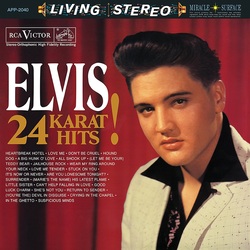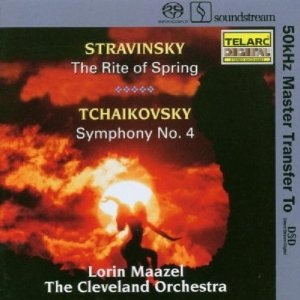
While, I don't typically sit and listen to music looking for flaws, I do care about the sound quality. As a result, I have music on many different formats...DVD-Audio, DualDisc, Vinyl, SACD, CD, and even hi rez downloads from HD Tracks.
On the sites I frequent, many have had combative threads on whether Hi Rez (24/96, 24/192, etc..) makes any difference when compared to standard CD quality (16/44.1).
There are plenty of articles that explain that going beyond 16/44.1 adds nothing to the sound quality of a recording. Boston Audio Society actually did a huge study with hi rez formats and blind testing of many people (including musicians and engineers). They found in their study that people could not hear the difference between a hi rez recordings and the same recording put through a bottleneck of 16/44.1.
Additionally, there are scientific articles that agree with the BAS study. There is also a huge thread on Head Fi's forum (this is a site dedicated to headphone users) that was started by an engineer that reached the same conclusions. I would highly recommend reading this thread, for anyone interested in the subject, because it not only explains why he believes hi rez has no advantage to CD quality, but the author (gregario) also answers questions.
I should mention that there are people that vehemently disagree with these articles...many complain about the BAS study and pick apart everything about the test... from the speakers that were used to the source material. However, no one that I am aware of (and I have read a lot on this subject) has produced a similar study with "acceptable" gear and "acceptable" source files to contradict the study. If people/companies/magazines were really interested in disproving the study, why wouldn't they produce their own comprehensive study?
While I don't want to get in a discussion about the conclusions or merits of the above studies..please put those questions to the experts in the Head Fi article I linked...I would love to see any study that was done with 50+ people that shows different results. Please post a link to those studies in my comments section. Be aware, that I am also not saying you should believe the studies just because I posted them...please read them yourself and follow up with authors with your questions/arguments.
With that aside, the main point of this article is to explain why I don't think these studies really make much difference. If our goal is to hear great sounding recordings, we often have no choice but to buy hi rez material. I know this seems to contradict the studies above, but the main issue is that mastering for hi rez music and CD quality music is often very different.
The "Loudness Wars" have been part of the mixing of CDs since their invention. I have linked the wiki article on the subject, but the basic point is that many CDs are mixed to be loud from beginning to end. In fact, some recordings actually go beyond the CDs abilities and cause distortion because of a clipped signal. When you think about dynamic compression, the reasoning for it makes some sense. When albums are louder than their competitors they stand out in comparison. This makes your ears perk up when compared to an album with a lower volume. While this probably results in more record sales, there is also a practical reason for dynamic range compression.
When you are listening to music casually..in a car, while cleaning the house, in the background at work, etc, music with a wide dynamic range can be a problem. For example, the quiet parts of the recording may be below the noise floor in your car. As a result, you have to turn up the volume to hear the quietest parts. Later, when the loudest parts of the album are played, you could be startled by how loud it is compared to the quiet parts. Most people don't want to have to constantly adjust volume during every song on a CD.
While portability is a main culprit in the compression, the concept has been around since the jukebox days when 45s were played in bars. People would hear the louder song and it would stand out compared to songs that were lower in volume.
What does this have to do with hi rez? Well, many hi rez recordings are mixed for better sound quality. In the case of SACDs, they are meant to be played in home stereo or home theater (5.1) setups. As a result, they are often (be aware that some aren't) mixed with more dynamic range and sound better in a home environment where critical listening would occur. As a result, you have to buy the hi rez version to get the best mastering.
So, for me, the arguments about hi rez versus CD quality, while interesting, become less important. I am not saying that it is not worth looking into, but who really cares why if the better sounding versions are usually found on hi rez formats?
In other words, when asked the question "Is hi rez music worth it"? I would say yes (assuming the hi rez version was mixed for sound quality) if you want to hear the music with the best sound quality in a relatively quiet room. Obviously, for people that listen in a home theater environment, many of these recordings also have a multichannel mix, which could make it worthwhile regardless of the reasons above.

 RSS Feed
RSS Feed